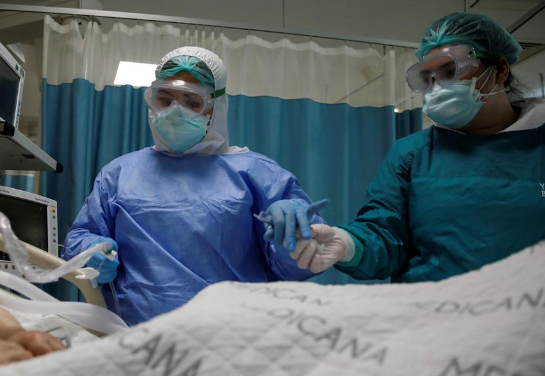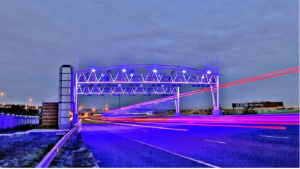The National Education, Health and Allied Workers’ Union (Nehawu) says healthcare workers in Gauteng are under siege and are struggling to treat the soaring levels of COVID-19 patients in the province.
Nehawu is concerned that it could get worse as more residents return to Gauteng after spending the holiday period at the coast or at rural homes.
Medical experts say the infection rate is likely to climb in the coming weeks and will put more pressure on already strained healthcare facilities.
Gauteng is bracing itself for a spike in COVID-19 infections and is stepping up efforts to curb the spread. They have targeted roadblocks and tollgates to screen and test those returning to the province.
Gauteng Premier David Makhura says it is a distressing time. “The police and health authorities have been working extremely hard. These are 24/7 operations. When you get home, we ask that you do not take off the mask. When you are not feeling well, please start to isolate. Our province is entering a worrying period. The number of hospital admissions is rising. There is going to be a spike in the next few weeks. The people of Gauteng need to know that as more people return from the different parts of the country, we are going to see a lot of increases in the cases.”
Healthcare facilities
Healthcare facilities in the province are already overburdened. Trade union Nehawu says the country’s largest hospital, the Chris Hani Baragwanath hospital in Soweto, is like a death trap for healthcare workers.
Nehawu’s Gauteng Co-ordinator, Clement Marule, expects the situation to get worse because of the lack of essential Personal Protective Equipment to protect their members.
“The Chris Hani Baragwanath Hospital is overwhelmed. Majority of the workers who are testing positive are nurses, that’s our worry. In ward 20, we are told, we lost one nurse this morning. In the same ward, 19 workers tested positive. In stores, another 19 tested positive. We are informed that most of the wards, they are not provided with the necessary PPE. Our concern is that the members are not coping and they are in very serious distress. We hope the premier will step up the game because we are under siege as Gauteng.”
Influx of people into Gauteng
Associate Professor of Epidemiology at Wits University, Cheryl Cohen, who is also attached to the National Institute for Communicable Diseases, says the influx of people into Gauteng over the next couple of days poses a risk.
“The numbers are increasing in Gauteng already. Currently, a lot of people are not in Gauteng, They have travelled to other areas. They will be returning over the coming days. Coupled with that, they have not only travelled but they have mixed with groups of people. There is a risk that people might have contracted COVID and not been aware of it. So, we expect that the numbers in Gauteng will increase and the influx of people from other parts of the country could exacerbate it. Healthcare facilities are under pressure and if the numbers go up, that pressure will increase.”
Professor Cohen is urging those who have travelled out of Gauteng to quarantine for at least ten days before interacting with others. “We are not all helpless in the face of this. There is a lot that one can do to reduce the risk of transmission. The measures that we recommend, physical distance, wearing masks, if you have to see people, do it outdoors. If you have relatives coming back from far away, wait for 10-14 days before mixing with people that have travelled.”
Vice-President of the Medical Research Council, Prof Jeffrey Mphahlele the increase in the number coronavirus cases will also be as a result of those who have travelled abroad:
As Gauteng prepares for even tougher weeks ahead, residents are being urged to assist by wearing masks, avoiding gatherings, sanitising, and remaining in-doors as far as possible.






